Anna was sitting in the parked car with two friends when a charcoal gray van pulled up and flashlight beams momentarily blinded her. The 18-year-old had grown up in south Brooklyn and spent many Friday nights like this driving around the city with friends, looking for places to hang out away from home. On this night, though, September 15, 2017, sometime between 7:30 p.m. and 8 p.m., she crossed paths with the cops.
There were two of them, both plainclothes detectives over 6 feet tall and powerfully built, flashing their badges and asking questions. There was weed in the front cupholder, and soon the detectives ordered the three occupants out of the car. As Anna later recalled, the detectives handcuffed her and told her friends, both young men, they were free to go. Then, she said they led her — a slender woman just over 5 feet tall — into the back of the unmarked police van with tinted windows.
Inside, Anna said the detectives took turns raping her in the backseat as the van cruised the dark streets and as she sat handcuffed, crying and repeatedly telling them “No.” Between assaults, she said, the van pulled over so the cops could switch drivers. Less than an hour later, a few minutes’ drive from where it all began, the detectives dropped Anna off on the side of the road, a quarter-mile from a police station, surveillance footage shows. She stood on the sidewalk, her arms wrapped around her chest, looking up and down the dimly lit street and pacing slowly before borrowing a cell phone from a passerby to call a friend.
The cops made no arrest, issued no citation, filed no paperwork about the stop. Hours later, Anna and her mother went to a hospital, where Anna told nurses two detectives had sexually assaulted her, according to hospital records. Semen collected in Anna’s rape kit matched the DNA of detectives Eddie Martins, 37, and Richard Hall, 33, of the Brooklyn South narcotics unit. Both have since resigned from the force and been charged with rape.
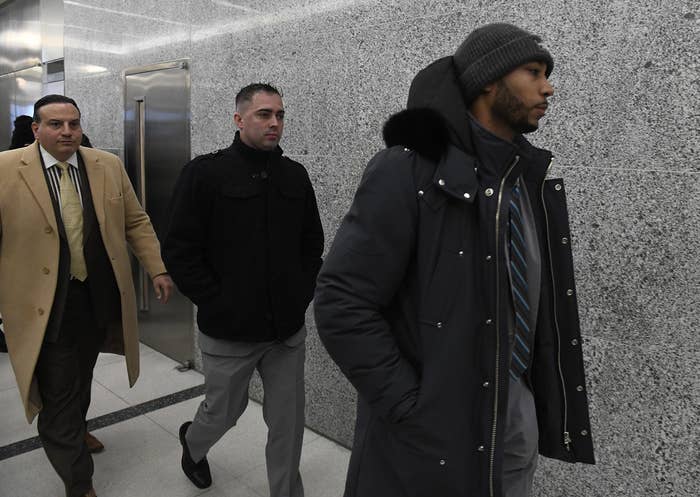
Anna assumed it was a simple case: Two cops had sex with a woman in their custody in the middle of their shift.
When a Facebook friend questioned whether there was enough evidence to dispute the officers’ claim that the sex was consensual, Anna wrote back, “Listen man it doesn't fucking matter they’re on duty police officers its a fucking violation these are the people we call for help not to get fucked.”
But Anna didn’t know that in New York, there is no law specifically stating that it is illegal for police officers or sheriff’s deputies in the field to have sex with someone in their custody. It is one of 35 states where armed law enforcement officers can evade sexual assault charges by claiming that such an encounter — from groping to intercourse — was consensual, according to a BuzzFeed News review of every state legal code.
“Our laws regarding sexual consent must be brought into line with basic common sense, empathy, and human decency.”
In recent years, some states have closed this loophole, applying to cops the same rules already in place nationwide for probation officers and prison and jail guards. Oregon did so in 2005, Alaska in 2013, and Arizona in 2015. Most have not, partly because few people realize the loophole exists, and partly because it has been politically unpopular to push laws that target cops and anger their powerful unions.
Of at least 158 law enforcement officers charged since 2006 with sexual assault, sexual battery, or unlawful sexual contact with somebody under their control, at least 26 have been acquitted or had charges dropped based on the consent defense, according to my review of a Buffalo News database of more than 700 law enforcement officers accused of sexual misconduct.
In most of the states that do not explicitly outlaw sex between on-duty cops and detainees, including New York, an officer can claim consent and face only a misdemeanor “official misconduct” charge, which carries a maximum one-year sentence.
“Cultural shifts happen, but what we need to see is a policy shift,” said Terra Burns, an advocate in Alaska who has worked to expand police sexual assault laws. “There’s a long entrenched history of institutionalized rape culture that has to change.”
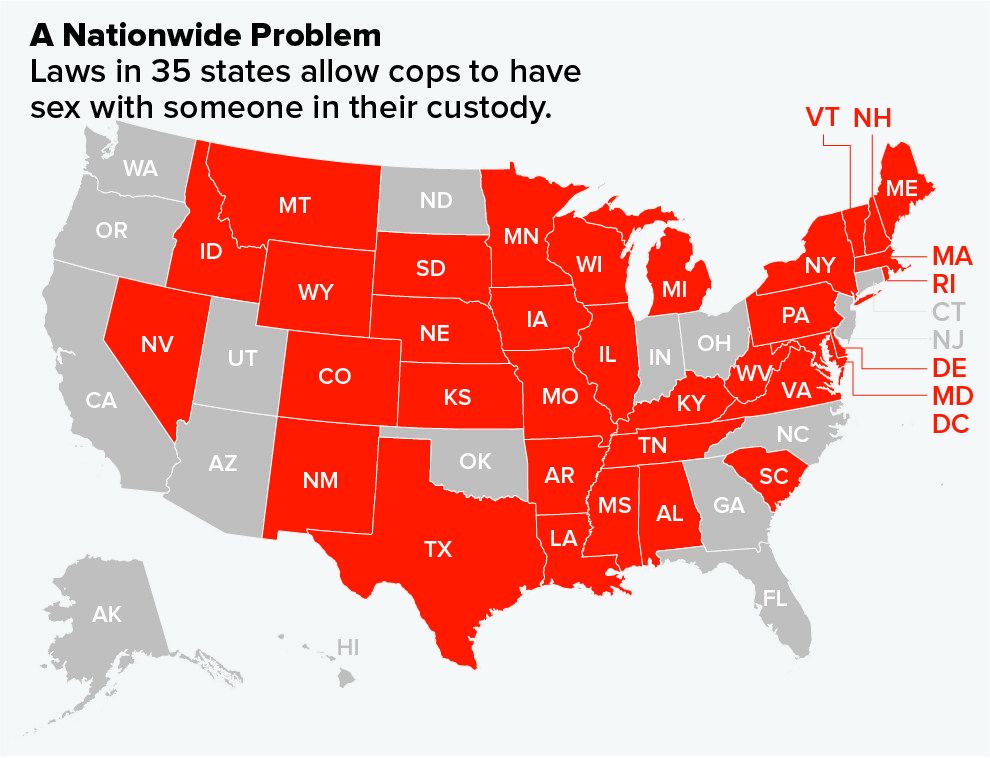
Anna’s case has brought new attention to this legal loophole. On October 26, 2017, New York City Council member Mark Treyger announced that the teen’s story had inspired him to propose a bill to make it illegal for police officers to have sex with anyone in their custody. “Our laws regarding sexual consent must be brought into line with basic common sense, empathy, and human decency,” he wrote in a post on Medium, calling on state lawmakers to pass similar legislation. New York City’s two biggest police unions both declined to state whether or not they support the proposal.
Anna hadn’t considered that her story had the potential to spur changes to the law. Her aim when she went public about her case was simply “to encourage other victims to come forward,” she told me after a recent court appearance. “Police aren’t supposed to be doing this.” Seeing her story “blowing up,” as she put it, has left her optimistic that more officers will be held accountable for sexual abuse. She believes that people are listening to her and will listen to others who have similar allegations. “All it took was one voice.”
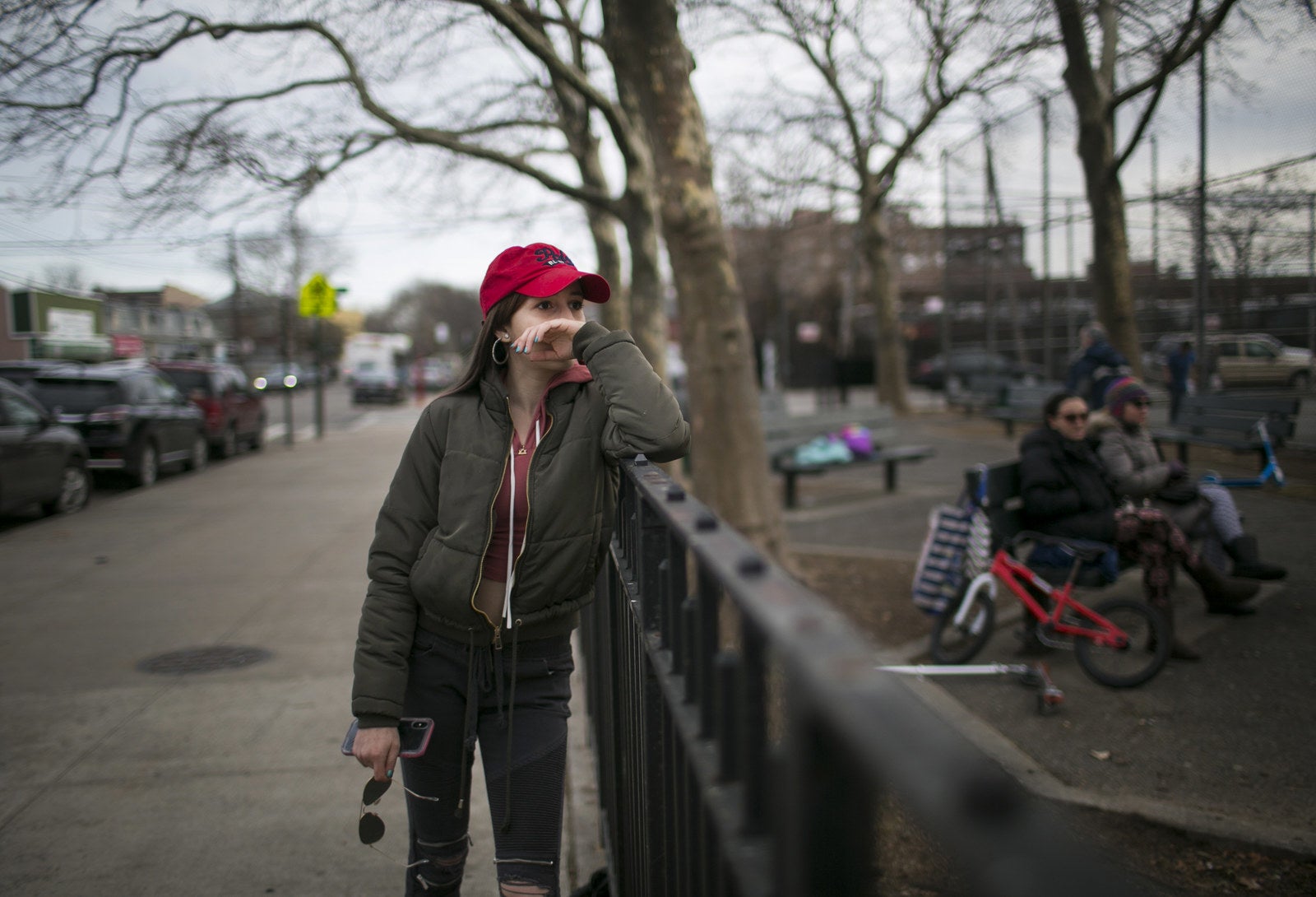
Anna’s last name hasn’t been made public, which is usually the case for the alleged victim in a rape case. In court documents she is referred to as “Anna Doe,” but on Facebook, Twitter, and Instagram she goes by the screenname she’s used since middle school: Anna Chambers. The daughter of Russian immigrants, Anna attended a racially diverse public high school, owns an impressive collection of Air Jordans, and wants to become a paralegal one day. She has tried to maintain her routine as the case has gone on, clinging to the normalcy she can find in this abnormal period. She still goes to the occasional house party or music show, still posts bedroom mirror selfies, still lives her life. On October 5, two weeks after she reported that she was raped, she was ticketed for weed possession.
The same day, the New York Times exposed Harvey Weinstein’s history of sexual misconduct, triggering scrutiny of powerful men who abuse their authority across a wide range of industries — Hollywood, media, politics, restaurants, hotels, sports, finance, factory work, housing. As the accuser in the first high-profile police sexual assault case since then, Anna stands at the intersection of two cultural shifts: the rising credibility of women who report sex crimes in the #MeToo era, and the falling credibility of police in an era flooded with videos of cops doing wrong.
Anna stands at the intersection of two cultural shifts: the rising credibility of women, and the falling credibility of police.
She has not shied from the moment. She has rallied support online, and now has around 7,000 followers on Twitter and 12,000 on her private Instagram account. “Thank you,” she replied to one well-wisher. “Who knows how many other girls they’ve done it to.”
Policing is a male-dominated field — Department of Justice statistics show that more than 80% of officers are men — where abuse is more rampant than statistics indicate because victims are less likely to report officer misconduct. “Police abuse of authority is often concealed,” said Norm Stamper, a former Seattle police chief. “Victims fear coming forward for fear of retaliation.” Officers who rape have plenty of weapons at their disposal: the threat of arrest, the access to a victim’s personal records, and the aura of immunity that comes from carrying a badge. The most sweeping investigation into the scope of police sexual misconduct, by the Associated Press in 2015, counted 990 law enforcement officers who lost their job for sexual misconduct between 2009 and 2014.
“Part of the reason the problem’s so bad in policing is there are people who are drawn to the job for the gun and the badge and the authority,” said Penny Harrington, a former Portland, Oregon, police chief. “And everybody else just keeps their mouth shut.”
This is nuts
Anna began telling her story publicly three days after her encounter with Martins and Hall, tweeting on September 18 — when only her parents, her friends, hospital nurses, and police knew about it — “These crooked ass cops i swear i never want to see one again. What if someone did that to your daughter.” On September 30, two days after the New York Post first reported on her allegations, which were laid out in a court document, she tweeted a photo of a New York Daily News article bearing her photo alongside the headline “Cop Savages.” “This is nuts,” she wrote.
In the months since, she has continued to chronicle her case on social media, posting links to news articles on Twitter and Facebook, sharing photos and videos of her trips to court on Instagram, retweeting the comments of others, and providing her own thoughts on the legal process in the efficient, blunt language of the internet.
“Tryna smear someone who got raped. Be proud of yourselves NYPD this is how you guys work?”
October 22, the day defense lawyers disputed her account: “Tryna smear someone who got raped. Be proud of yourselves NYPD this is how you guys work?”
October 27, the day the Brooklyn District Attorney’s Office filed charges of rape, kidnapping, bribery, and official misconduct against Martins and Hall, who face up to 25 years in prison: “GODBLESSSSSS”
November 6, the day Martins and Hall resigned from the NYPD: “Their bail should be revoked since they aren’t ‘cops’ anymore.”
Her lawyer, Michael David, offered to represent Anna after learning that one of his longtime clients was a relative of hers. It’s the biggest case he’s ever handled, and his initial instinct was to rein in her social media activity to protect her from posting something that could be used against her in court.
But she had no interest in being a silent observer, especially at a time when so many women were speaking up about their experiences with sexual assault and harassment. “Usually an attorney tells their client to stay off social media, but in her case it was just the opposite,” David said. “I didn’t tell her to tone it down. It got her attention. It got her media pressure.”
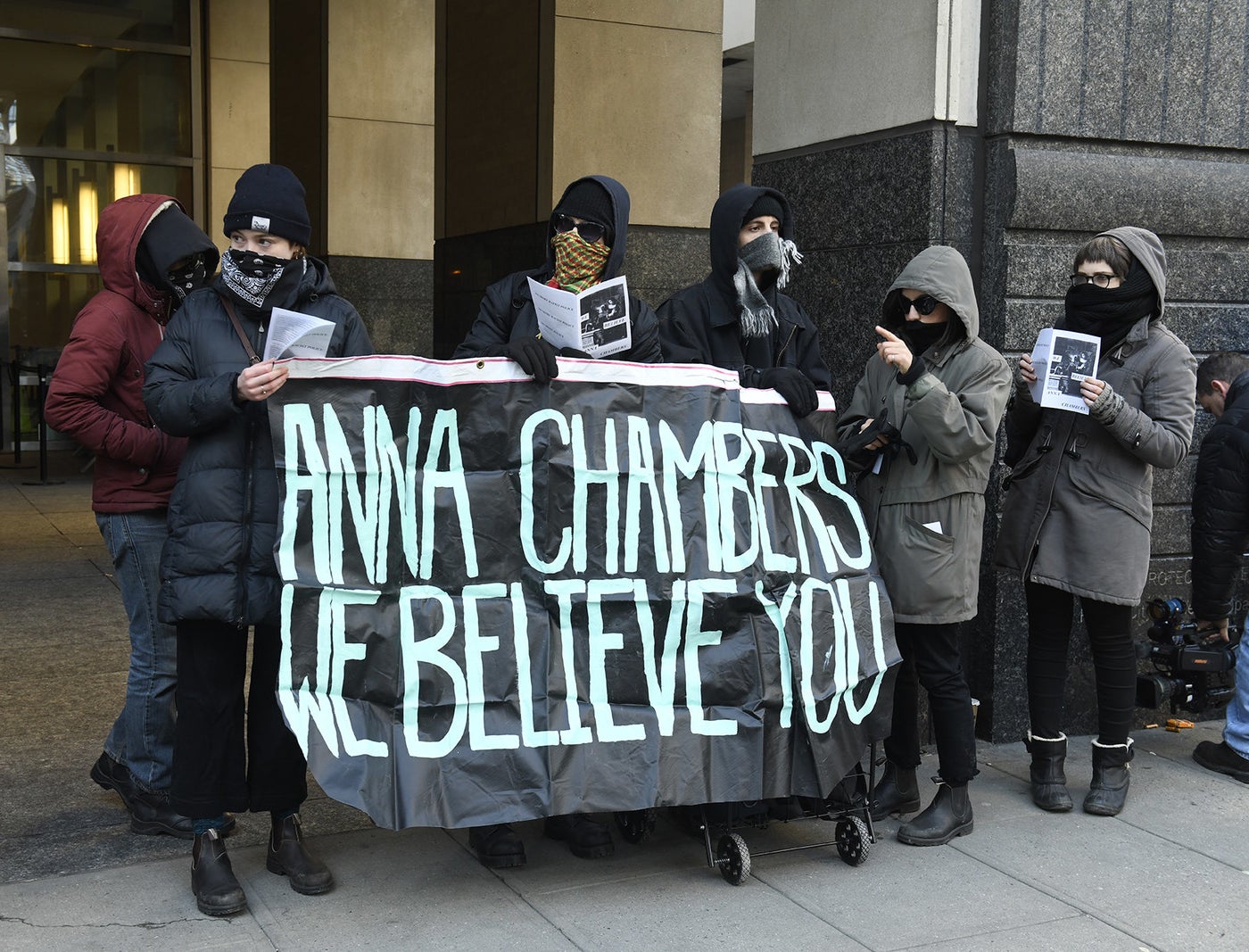
With Anna’s approval, David shared the details of her allegations in interviews with several news outlets: the detectives ordering her to take off her bra to show she wasn’t hiding drugs, telling her friends not to follow the van, making their intentions clear once they were on the road, then forcing themselves on her.
By mid-October, Anna’s name had become a hashtag. The first rally in her honor was on October 17, when about two dozen supporters marched through southern Brooklyn chanting her name and carrying signs that said, “We believe you.” On October 28, Funkmaster Flex, perhaps the most famous hip-hop radio DJ in the world, used the entirety of his five-hour Saturday night show to bring attention to her case, urging listeners to call in if they had any information about Martins and Hall.
A month later, more than 50 supporters gathered in Washington Square Park in Manhattan for another rally. “I obviously am not allowed to attend, but guys I really fucking truly appreciate this so much,” Anna wrote on the Facebook page for the event, adding in a later post, “Please send all pics/videos you guys may have.” Weeks later, on the morning of a court hearing for the case, a banner was hung from the Manhattan Bridge: “Martins & Hall aren’t the only rapists / Abolish police.”
“It’s the first time I’ve felt hope in years,” she said. “All of a sudden women are being heard.”
Across the country, police departments are being pushed to confront longtime patterns of abuse. In October, a retired Anchorage, Alaska, Police Department captain wrote a newspaper column detailing the “incessant” sexual harassment she experienced from fellow cops during her career. At a Chicago Police Board meeting in January, a woman shared her experience of getting raped by a cop during her teenage years in the 1980s. Some activists have begun using the hashtag “#policetoo.” In the five weeks following the Weinstein news, at least three police chiefs were fired for sexual misconduct. Since October, at least 21 cops in seven states have resigned or been terminated because of sexual misconduct allegations.
While there have been high-profile cases of police sexual assault in recent years, the culture of misogyny and invulnerability in most police departments remains, said Harrington, the former police chief in Portland. But she believes a reckoning is coming to law enforcement. “It’s the first time I’ve felt hope in years,” she said. “All of a sudden women are being heard.”
And yet, New York's law means that a trial will pit the word of two ex-cops against the word of a teenager.
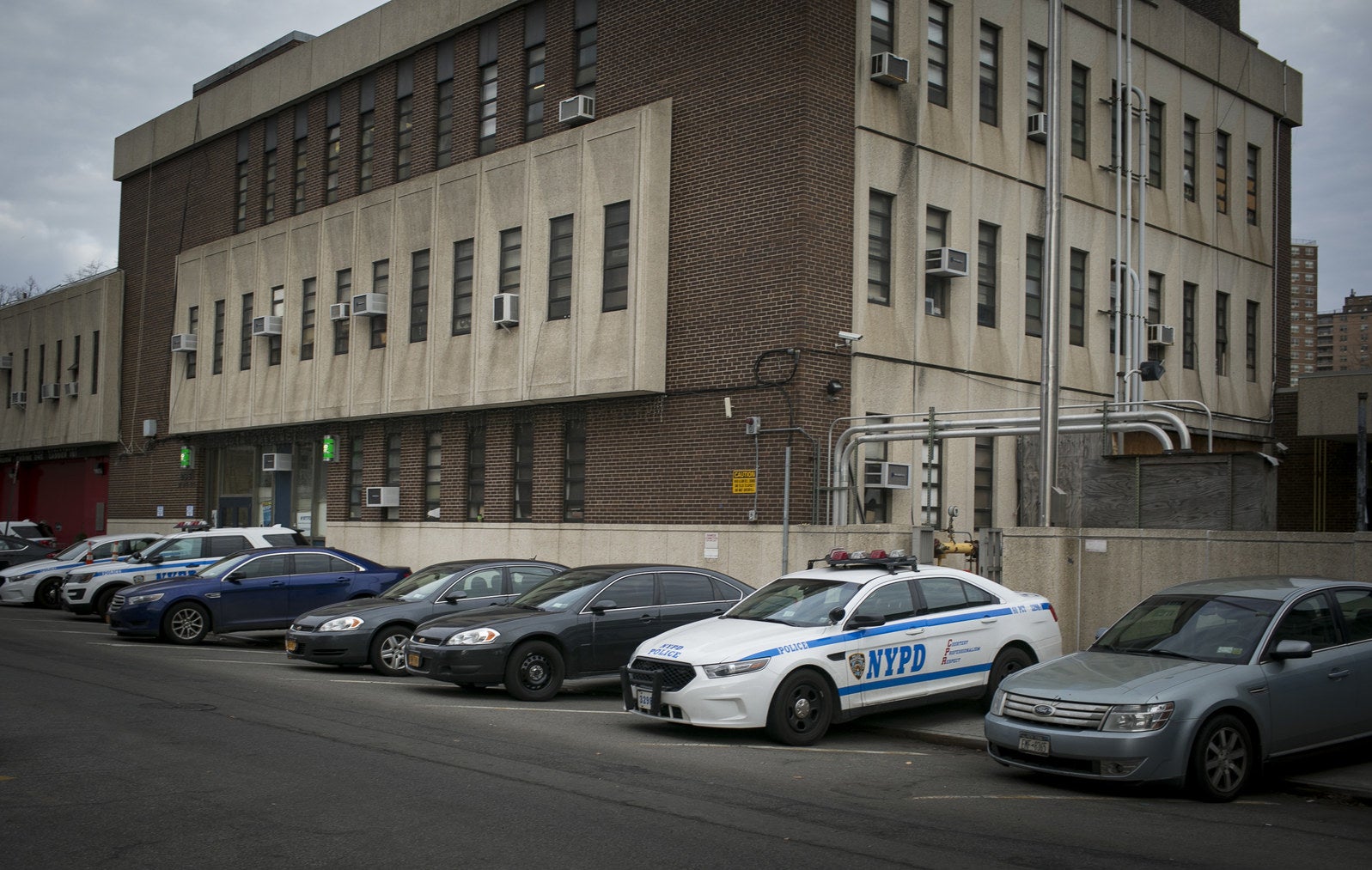
The legal process requires Anna to recall the events repeatedly, in detail. In the past five months, she has given statements to a series of NYPD investigators, to her lawyer, to prosecutors, to a grand jury, and to attorneys representing the city for her lawsuit against the department.
“It’s painful,” she said. “I didn’t know what to expect. I still really don’t.” To Anna, some of those sessions, especially with city attorneys, felt more like interrogations. She hadn’t thought much about the court system before all this. She didn’t know how much of her life was now open for questioning. She hadn’t seen any need to clean up her social media accounts, and didn’t know her old posts could be used as evidence that she was lying. She’d put up photos of herself in bikinis. She’d gone to a porn convention when she was 17. She’d posted on Facebook a link to a website about sex when she was 13. She has never hidden that she enjoys smoking weed. Sometimes she makes dirty jokes.
“Who gives a fuck about what I post,” she tweeted after learning that defense attorneys were citing photos, videos, and comments from her social media history in an effort to persuade the DA’s Office to drop the charges.
Defendants Martins and Hall haven’t told their side. The gist of their defense at this point: “There was no nonconsensual sexual encounter,” said Martins’ lawyer, Mark Bederow, a former assistant district attorney in Manhattan who has worked criminal defense since 2004. He denied that Anna was handcuffed and that the men used physical force on her. While defense lawyers won’t say what, according to the cops, happened inside the van, their public statements and the evidence they have presented so far point to their only possible legal strategy: Painting Anna as a temptress who came onto them.
Who gives a fuck about what I post https://t.co/tyDW6uLxUu
This has been the most common defense used by cops acquitted in sexual assault cases. In 2007, former Irvine, California, police officer David Alex Park was acquitted of sexual assault after claiming that the woman initiated sex to avoid getting a ticket. In 2016, before Arizona’s recently passed consent law went into effect, former Phoenix police officer Timothy Morris was acquitted of sexual assault even though he admitted to having oral sex with a handcuffed woman in his patrol car, claiming she had seduced him.
Lawyers for Martins and Hall have canvassed Anna’s social media footprint. They’ve flagged items posted since the incident: a tweet about the “paparazzi” she found waiting for her outside the courthouse; captions dubbing herself “50mily,” a possible reference to her $50 million lawsuit against the department; tweets with any sort of sexual reference; comments on her pages posted by others claiming to have evidence that she is lying, including one to which she replied, “I hope ya mommy gets gang raped.”
The effort to damage Anna Chambers’ credibility became known to the public in October when the New York Post obtained a letter the defense lawyers had sent to prosecutors, referencing “provocative photos” and arguing that the DA’s office should “further investigate Chambers’ dubious claims.” The lawyers suggested that the life she presented on social media was evidence that she had not undergone the trauma of a sexual assault. “This behavior is unprecedented for a depressed victim of a vicious rape,” the letter said.
In December, Anna gave her deposition for the lawsuit. In the conference room of a private law firm, she and her lawyer sat across the table from attorneys representing New York City. The questioning and answering spanned 12 hours over three days, and when the transcript was typed up it ran for 740 pages. Hours were spent going over her social media posts, a painstaking accounting going back to her middle school years. Another chunk was devoted to her sexual history. Another covered her gynecological exams. During a round of questioning about a set of Facebook comments, she broke into tears.
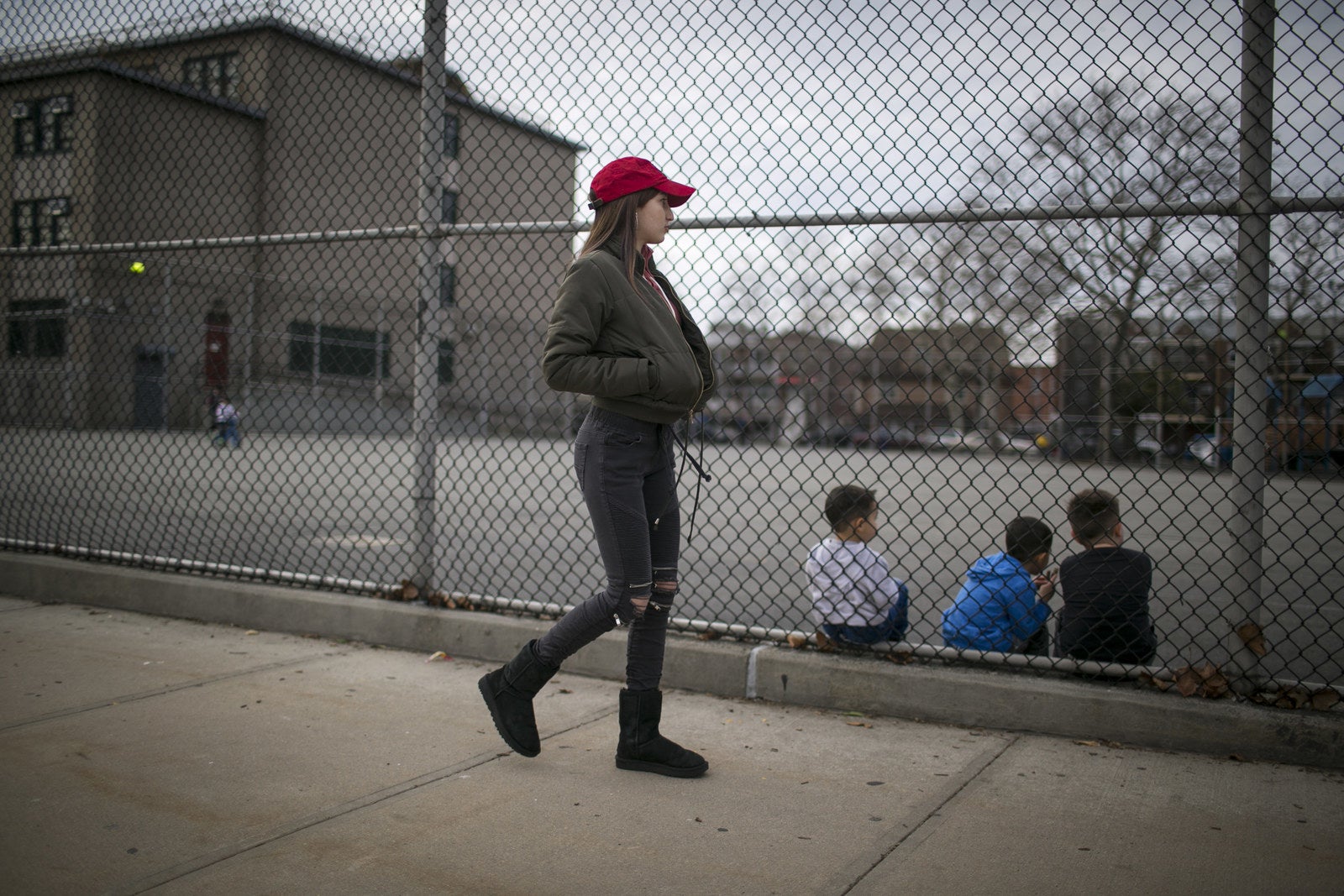
The trial is likely many months away. At some point, a judge will determine how much of Anna’s personal and social media life defense lawyers may present at trial. At some point beyond that, she will take the witness stand and be cross-examined by the lawyers who have called her a liar.
Lawyers for Martins and Hall continue to call on the DA’s Office to drop the charges, accusing prosecutors of ignoring evidence that reveals Anna’s “willingness to lie” and of rushing the case forward to satisfy Anna’s supporters who want to see the men held accountable. Of the evidence the defense has pulled from her social media history to undermine her, Anna said, “None of that should matter.” It only matters because of the loophole.
In another letter challenging Anna’s credibility, filed in January, defense attorneys pointed out various inconsistencies among her statements, including over which detective told her to take off her bra, which pocket her cell phone was in, the reason she took time away from high school, and why she told city attorneys she’d dressed up as the Disney princess Jasmine for Halloween when her social media posts showed her in an orange inmate costume, a set of handcuffs dangling from her belt. A judge plans to rule by April 5 on which, if any, portions of the deposition transcript are admissible for trial.
Praying for justice god only knows.
Meanwhile, Anna, who is now 19, still lives in a neighborhood policed by former colleagues of the men she accused. “I see police cars park on my block all the time,” she told me. “I feel like I’m being watched.” She has felt that way since that night at the hospital, when she counted nine cops, of various ranks and roles, passing through the hallway as the investigation into her case began. She spends most days in her room on social media, she said. Those who follow her on Instagram can see the live videos she often posts from her bedroom, rapping to songs or talking to friends or putting on lip gloss while she scrolls through her phone. She responds to the comments, which mostly show love, sometimes spew hate, and every now and then offer advice on her case or encourage her to run for political office. She seems at ease, though not relaxed. She still lives her life, but it is now a life that carries the weight of that September night, and all that has followed. She seems to understand the long road she’s facing, and how lonely it can be. On the first day of 2018, she tweeted a link to a news article about her case, with the note, “Lets not forget.”
And many haven’t. On January 18, the morning of Anna’s latest hearing, about a dozen supporters stood outside the courthouse holding two signs: “Anna Chambers We Believe You” and “Let’s Smash This Rapist Cop State.” Passersby stopped and asked about the case. Staffers talked about it in elevators. Photographers and television cameras gathered in the hallway outside the courtroom. Anna walked past them without looking, her hands in the pockets of her green bomber jacket, her eyes behind reflective sunglasses, her two lawyers flanking her. The gallery was already half full by the time she entered, and she found a seat in a middle row. When Martins and Hall arrived a few minutes later, the only open spot left was just across the aisle. That night, Anna posted on Instagram a photo of herself leaving the courtroom, writing in the caption, “Its disgusting seeing these monsters 12 ft away from me.” ●
CORRECTION
Anna tweeted a photo of a New York Daily News article about her case on Sept. 30. An earlier version of this story misidentified the newspaper.
CORRECTION
Ohio's law bars sex in custody between police and detainees, and DC's does not. An earlier version of the map in this story had the colors reversed.
